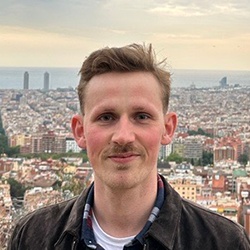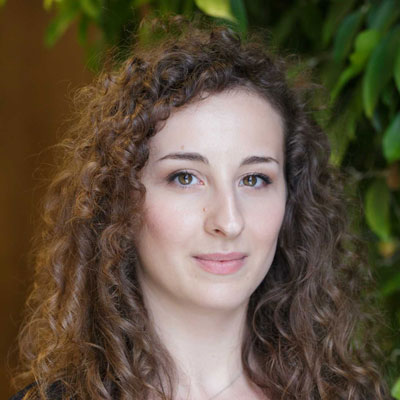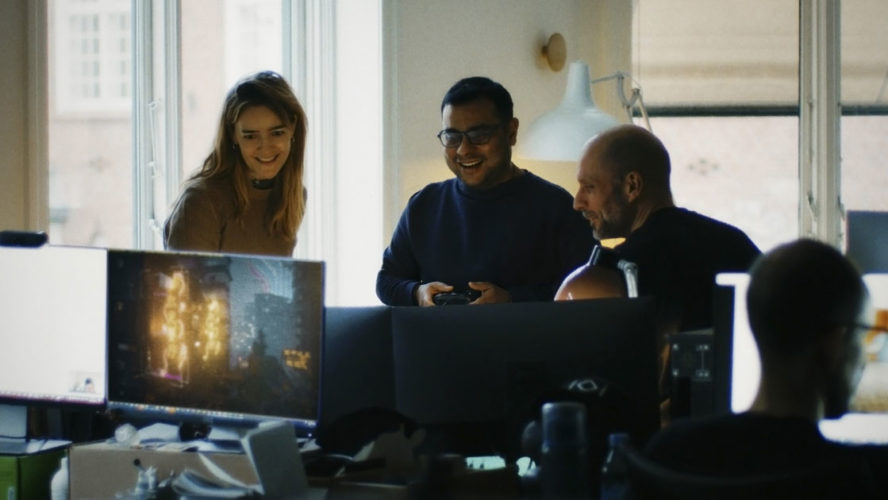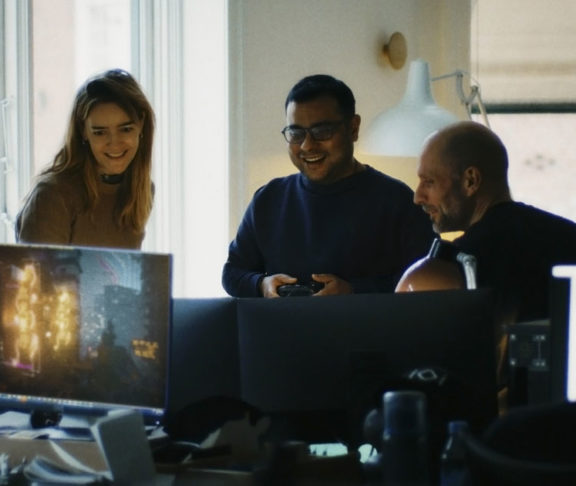
Stine Louise Norstrand
Design People Manager, IO Interactive

Niklaes Cristian Toft Larsen
Art People Manager, IO Interactive

Marina Surdu
Senior Talent Acquisition and Employer Branding Specialist, IO Interactive
An independent group of personnel known as ‘people managers’ are bringing a new level of equality and opportunity within a global video games organisation.
People Managers have a pivotal caring role that embraces diversity and equality. They have a unique position within the workplace and sit separately from any HR function, instead deployed in a wider role designed to benefit personnel at all levels.
Role establishing equal opportunity
Marina Surdu, Senior Talent Acquisition and Employer Branding Specialist at IOI, explains that People Managers are one of the most important ways they ensure equal opportunity for career growth for staff. “They are separate from HR or production, and their main goal is to work with the wider organisation and developers towards their professional and personal development,” she says.
IOI, which aims to create entertaining and impactful game experiences for players and communities worldwide, passionately believes that everyone within the organisation is given equal chances at career growth via a well-thought process.
Niklaes Cristian Toft Larsen, Art People Manager, says: “Equal chances at career growth give opportunities for new ideas that we could not discover otherwise. That makes everyone a part of this mission.”
Ensuring development across disciplines
IOI has People Managers for each discipline, such as design, tech and art. Each is an expert at people development and strategy, with rich experience in their respective craft. Underlining the importance of independence within their unique roles, Surdu says: “That means they are unbiased and are key stakeholders focused exclusively on people and their growth, wellbeing and offering the best conditions, so people can achieve their potential.
“They work with production, studio management and HR to ensure their strategies are in place and the organisation carves room for people’s development.”
Freedom in career path
The People Managers have implemented a studio-wide process for career development and implemented it across the organisation. “They have developed a career ladder that is well-defined in terms of seniority levels and the skills needed under each: both craft-related skills but also in terms of behaviour, proactivity and communication,” continues Surdu.
Recognising that not all developers necessarily want to move up the ladder, the organisation also accounts for those who want to expand their knowledge. “We give them the freedom to take up something completely different than their craft or follow passion projects that deepen their expertise,” she continues. “We call these side-quests.”
Equal chances at career growth give opportunities for new ideas that we could not discover otherwise.
Niklaes Cristian Toft Larsen
Flat hierarchy strategy
Having dedicated People Managers for each craft allows them to have an overview of everyone’s ambitions and prepare concrete steps with regular reviews to help individuals achieve their goals.
As Design People Manager Stine Louise Norstrand notes: “When working with passionate people like game developers, we need to remember to show them respect for the time and passion they invest. That goes for their career, wellbeing or everyday work they do.”
The flat hierarchy in place at the company is designed to give everyone room at the same table. “Knowledge, approach and passion need to be acknowledged too, and our developers want that,” adds Surdu.
Enabling equality and inclusion
So, how does the flat hierarchy impact equality? “Giving the right people the support system to show their worth and make decisions means you give a voice to people who are otherwise shy, lack confidence or otherwise unseen and underrepresented in big organisations,” she explains.
“By having a standard process for all, they get to build a trust-based relationship with their People Managers, express their ambitions and have support throughout.” She says there is an indisputable premise that everyone should have equal opportunities regardless of ethnicity, faith, neurodiversity, gender expression or sexual orientation. “We advocate positive support for women, trans, queer and all the colours of the rainbow,” adds Surdu.




